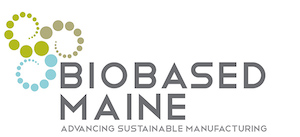Ben & Jerry’s Joins Major Global Brands Phasing Out Petroleum-Based Plastics

Ben & Jerry’s is committed to phasing out all single-use plastics, the company announced earlier this year, replacing plastic spoons and straws in its 600+ Scoop Shops worldwide with wooden spoons and paper straws by April 2019 as a first step.
Ben & Jerry’s joins other corporate leaders in phasing out plastics made from petroleum, demonstrating the sharply rising global demand for biobased plastics and a more renewable supply chain.
“This transition is the first step for us on a more comprehensive journey to eliminate single-use, petroleum-based plastic in our supply chain.”
—Jenna Evans, Ben & Jerry’s Global Sustainability Manager.
Indeed, countless other major brands have recently made commitments to a more renewable supply chains and/or using more biobased products. In 2018, Starbucks announced the NextGen Cup Challenge, an initiative in partnership with Closed Loop Partners’ Center for the Circular Economy, to pursue a greener coffee cup. McDonald’s joined the Closed Loop Partnership soon after, seeking compostable and fully recyclable coffee cups.
Many brands have partnered with biobased technology companies to help accelerate the commercialization of more sustainable plastics, such as Nestlé’s new partnership with Danimer Scientific to pursue a biodegradable water bottle. Danimer’s bioplastic called PHA is one of the only in the world to be certified as marine biodegradable. The ability for bioplastics to break down in seawater is becoming increasingly important as it’s been estimated that plastics will outweigh fish in our oceans by 2050.
Ben & Jerry’s is also seeking alternatives to its other major uses of single-use plastics, the company said, specifically making a commitment to find sustainable alternatives to its clear plastic cups, plastic-lined cups, and plastic lids.
The company notes that it “has a history of striving for more sustainable packaging solutions.” Pints have been made with Forest Stewardship Council (FSC) Certified paperboard since 2009, but they are coated with polyethylene to create a moisture barrier, which makes them difficult to recycle.
“Over the past year, we have begun an intensive effort to find a biodegradable and compostable coating that meets our product quality requirements,” said Jenna Evans, Ben & Jerry’s Global Sustainability Manager. “We’re committed to exploring additional options to further reduce the use of disposable items. This transition is the first step for us on a more comprehensive journey to eliminate single-use, petroleum-based plastic in our supply chain, and we look forward to reporting on our progress.”
Biobased Maine has developed relationships with technology companies around the globe who know how to make some of these biobased products and bioplastics. Our goal is to help bring these technologies to Maine, and help our company members connect with these innovative companies. Let us know if your company wants to increase the renewable content of its supply chain, and we can help.
